This ceremony is usually held on the last Friday of each month at the Buenavista Palace, and there are two types of reliefs that alternate from one month to the next. The oldest corresponds to the time of Charles III (the troops wear the uniforms of the reign of this king in the second half of the 18th century) and the most recent corresponds to the time of Alfonso XIII (with uniforms from 1908):
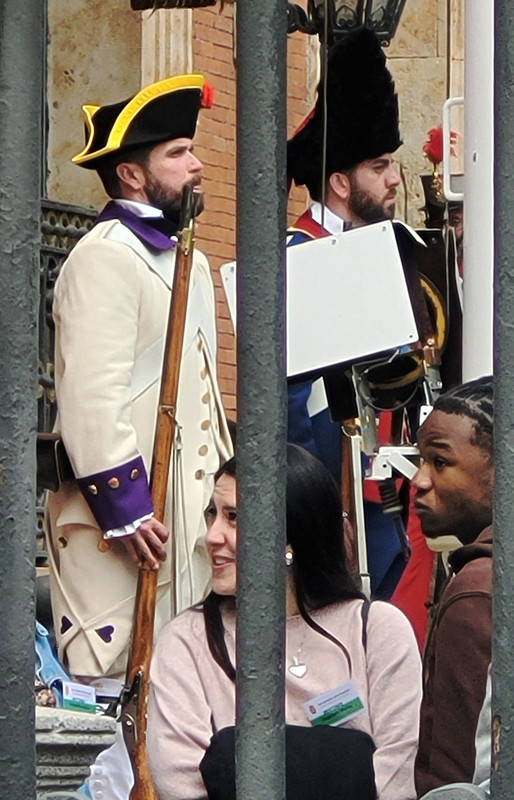
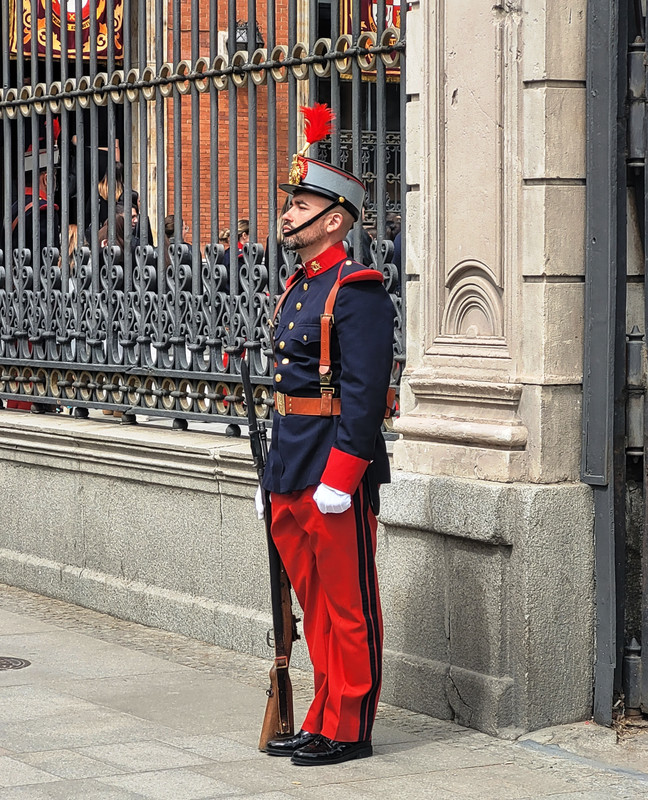
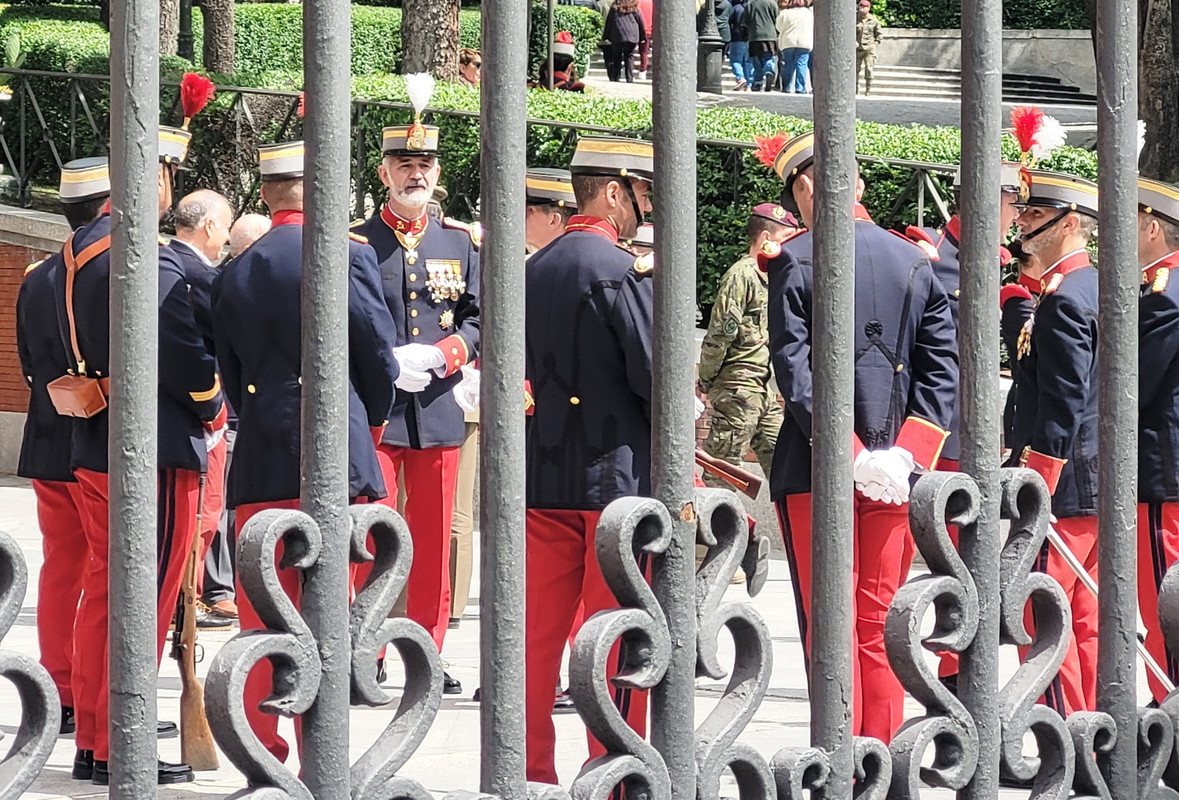
The relief is carried out by the Infantry Regiment "Inmemorial del Rey" No. 1 and its essential format responds to the changing of the guard that has been carried out daily for several centuries in all the Spanish barracks and military bases, being very similar to the one that on the first Wednesday of each month the Royal Guard performs at the Royal Palace.
The ‘Inmemorial del Rey’ Infantry Regiment No. 1 is considered to be the oldest armed unit in the world, as there is evidence that its first formation dates back to 1248, when it participated under the command of King Ferdinand III the Saint in the reconquest of the city of Seville from Islamic rule. It first acquired its current name in 1776, during the reign of Charles III.
Regimental colonel's flag (coronela) from 1830 to the present day:
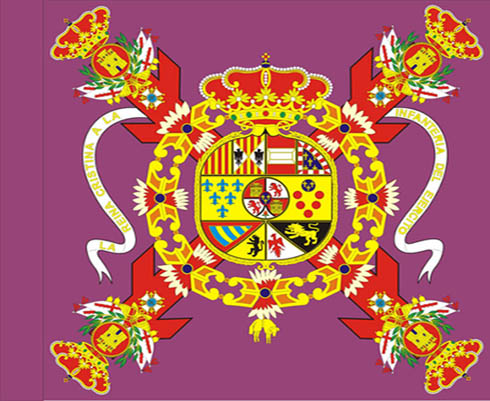
The event takes place in the assembly courtyard of the Buenavista Palace, home of the Spanish Army Headquarters, located in the centre of Madrid, opposite the Bank of Spain and the City Hall of the capital:
Bank of Spain (photo by Luis García):
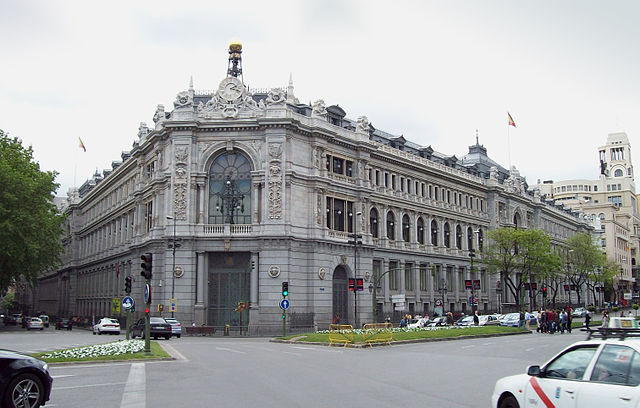
Madrid City Hall (photo by Carlos Delgado):
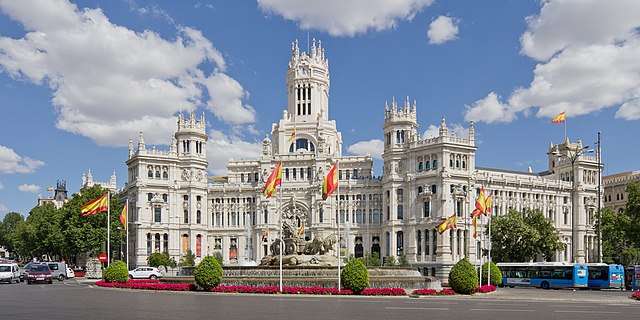
Gate of Buenavista Palace (photo by Zupez zeta):
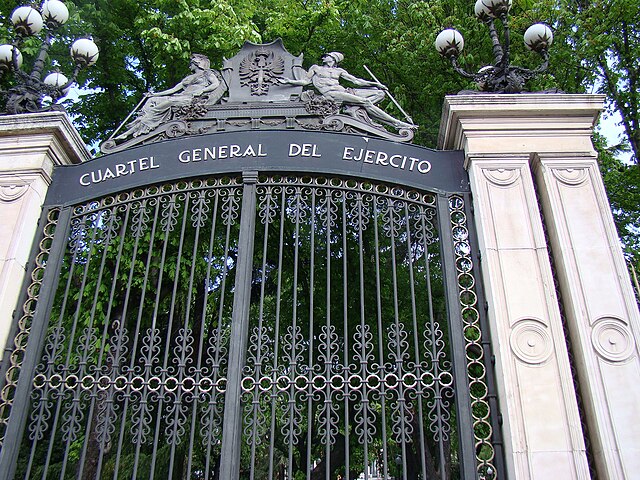
Assembly courtyard seen from the outside (photos by me):
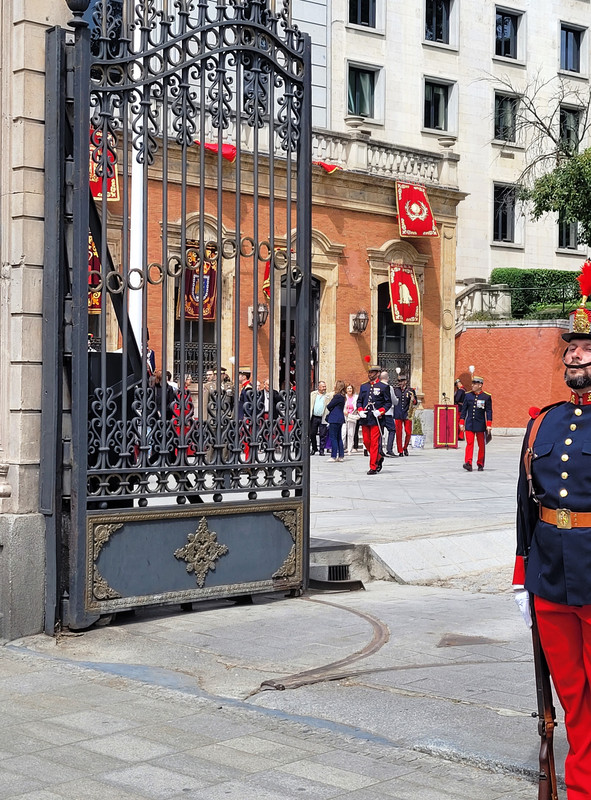
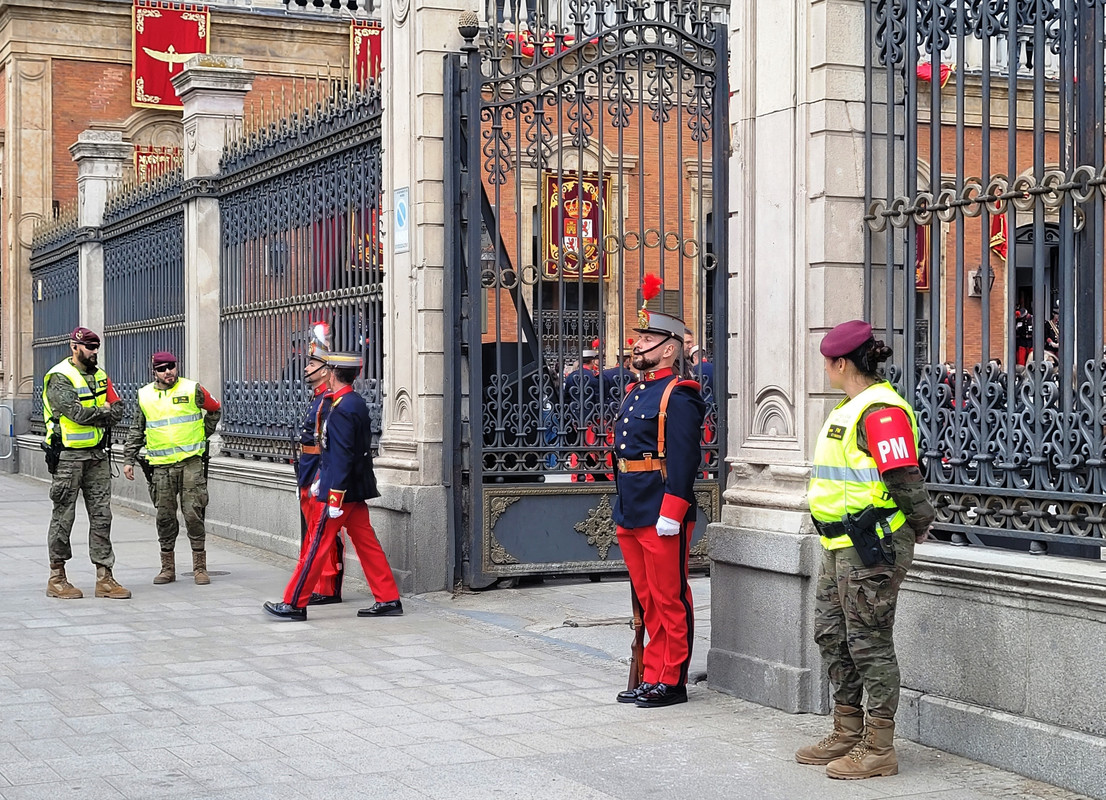
The Music Unit of the Immemorial Regiment performs the assembly call as a preamble to the meeting of the two guards. The outgoing guard waits in the courtyard of the palace for the incoming guard, which arrives on parade preceded by the pioneers squad and the war band. Once the two guards are facing each other, their officers salute each other and the captain-in-chief of the force then requests permission to take over from the presiding authority, who on this day was a Brigadier General of the army.
The regimental Colonel on the left in 1908 uniform and the General on the right in everyday dress:
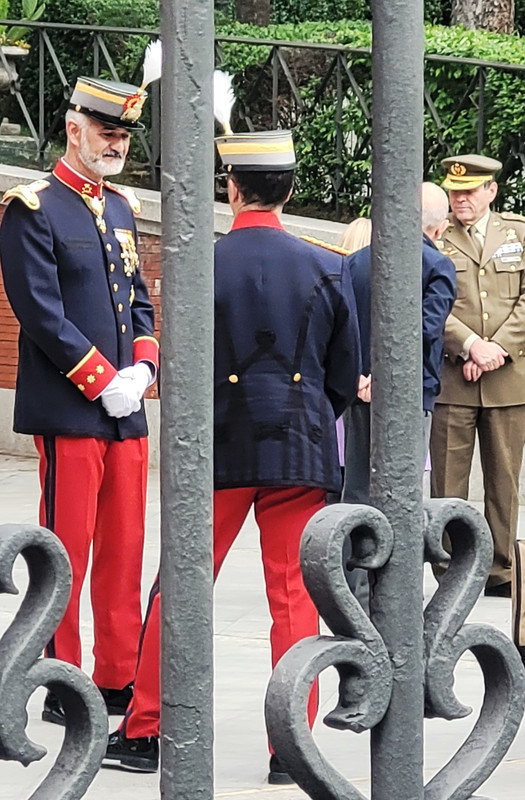
This is followed by the actual relief, with the sentries relieving their posts in the presence of the corporals, both incoming and outgoing, with the outgoing corporal commanding the formation.
At the end of the changeover of the guard posts, the officers of both guards, lined up facing each other again, give the news to the captain in command of the force, and the latter to the presiding authority, also requesting permission to withdraw the incoming guard. Finally, the commander-in-chief of the force, the pioneers squad, the war band and the outgoing guard leave the assembly courtyard, parading with arms over their shoulders, to the sound of a military march.
To round off the event, the Music Unit performs various pieces of music for the enjoyment of the audience.
For a change, this time I was also able to make a modest VIDEO of some of the events of the ceremony. Here is the YouTube link for anyone who wants to watch it:
https://youtu.be/hXVNyTb-V8M
Next month the ceremony will be held in 18th century uniforms. I hope to be able to be there then and post the information here for you all.
Sorry for the length of this post. Nevertheless, I hope you like it. Thank you very much, my friends.
Santi.




